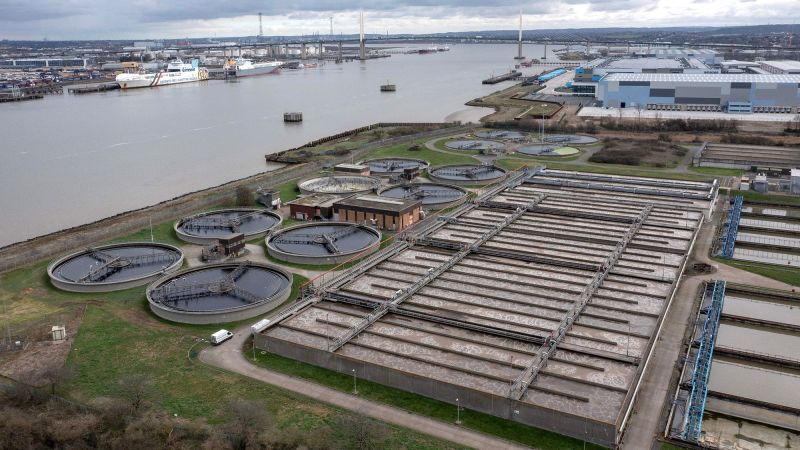Investors are refusing to inject billions in new money into Britain’s biggest water company, leaving the beleaguered business at risk of an emergency government takeover.
The nine shareholders in Thames Water, which supplies water and wastewater services to 15 million people in London and the southeast of England, said in a statement Thursday that they were “not in a position” to provide an extra £3.25 billion ($4.1 billion) because UK water regulator Ofwat was insisting on conditions they could not accept.
“After more than a year of negotiations with the regulator, Ofwat has not been prepared to provide the necessary regulatory support for a business plan which ultimately addresses the issues that Thames Water faces,” the shareholders said.
The utility counts UK and Canadian pension funds, as well as sovereign wealth funds from China and Abu Dhabi, among its investors.
In its turnaround plan published in October, Thames Water, which is saddled with £14 billion ($17.7 million) in debt, proposed to jack up the average annual customer bill by 40% by 2030.
In July, the utility’s shareholders agreed to pour an extra £750 million ($945 million) into the company before March 2025 to stave off a temporary takeover by the government. The first £500 million ($630 million) of that sum was due by Sunday, March 31.
The funding was subject to conditions, including the company improving services for customers and reducing its environmental impact, and approval by Ofwat.
“Based on the feedback provided by Ofwat to Thames Water to date, the regulatory arrangements that would be expected to apply to Thames Water… make the (turnaround plan) uninvestible,” the utility said in a statement Thursday.
Chris Weston, chief executive of Thames Water, added in the statement: “I’d like to reassure our customers that, despite this announcement, it is business as usual for Thames Water.”
A spokesperson for Ofwat said “safeguards” were in place to protect customers from Thames Water’s troubles. “The company must now pursue all options to seek further equity for the business to turn around the performance of the company for customers.”
According to Reuters, British finance minister Jeremy Hunt said Thursday that the government was monitoring Thames Water “very carefully.” “Our understanding is that the company is still solvent,” he was quoted as telling reporters.
Water companies in England and Wales have racked up billions of pounds of debt since they were sold to private investors in 1989, while raising little new funding from shareholders and paying out billions of pounds in dividends.
The indebted utilities have struggled as interest rates have soared over the past two years, and as their aging, leaking infrastructure has required billions of pounds of investment.
Weston told the BBC Thursday that there was a “possibility” that Thames Water would be put into special administration — an arrangement that would effectively take it into temporary public ownership — but said the company was “a long way from that point.”
“We remain in a solid financial position, we have about £2.4 billion of liquidity at the moment in cash and undrawn facilities, and that’s enough to last us until about May 2025,” he said.
Olesya Dmitracova contributed reporting.
Read the full article here




